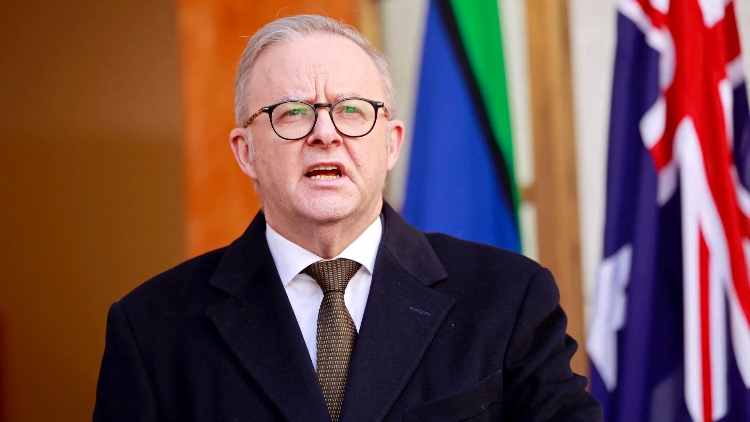On Sunday 10 August, Australia announced that it will officially recognize a Palestinian state at the upcoming UN General Assembly in September.
Australian Prime Minister Anthony Albanese framed it as a crucial step toward achieving a two-state solution that could help end the cycle of violence in the Middle East.
He emphasized that the recognition is contingent on commitments from the Palestinian Authority, including assurances that Hamas would not be involved in any future state.
Albanese stated, “A two-state solution is humanity’s best hope to break the cycle of violence in the Middle East and to bring an end to the conflict, suffering, and starvation in Gaza.”
This announcement follows discussions with leaders from the UK, France, and Canada, all of whom have expressed similar intentions regarding Palestinian statehood.
Albanese highlighted the importance of this moment, suggesting that there is an opportunity for the international community to work together towards peace.
He conveyed his belief that recognizing Palestine could help isolate Hamas and encourage the Palestinian Authority to strengthen governance and hold general elections.
Albanese criticized Israeli Prime Minister ’s government for its approach to resolving the conflict, asserting that a political solution is essential rather than a military one.
He pointed to Israel’s plans to expand settlements and take military control of Gaza as actions that undermine the prospect of peace.
As Australia prepares to recognize Palestinian statehood, the move has drawn mixed reactions. Israel’s government has condemned the decision, claiming it rewards terrorism and undermines security efforts.
Netanyahu described the actions of countries recognizing Palestinian statehood as “disappointing” and “shameful,” arguing that they do not consider the security threats posed by Hamas.
In contrast, the Palestinian Authority welcomed Australia’s decision as a significant step toward self-determination for its people. Palestinian officials have expressed hope that this recognition will lead to increased international support and aid, particularly as the humanitarian situation in Gaza continues to deteriorate.
Former Australian foreign minister Gareth Evans also praised the decision, stating that Australia’s recognition would help apply pressure on the Netanyahu government to reconsider its policies.
The recognition comes as Israel faces mounting pressure to cease its military operations in Gaza, which have resulted in dire humanitarian consequences.
According to Palestine’s health ministry, at least 217 individuals have died from starvation and malnutrition in recent days, raising the total death toll from the war to over 61,000.







Comments (0)